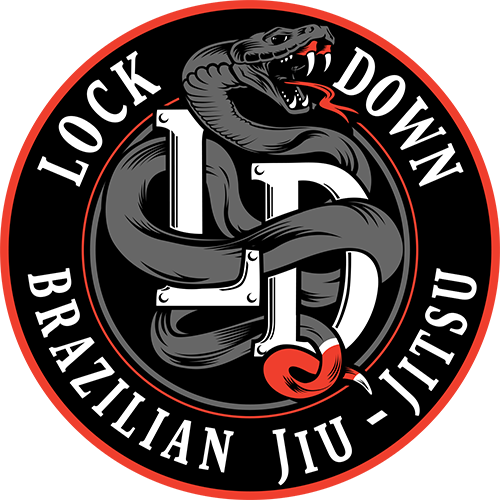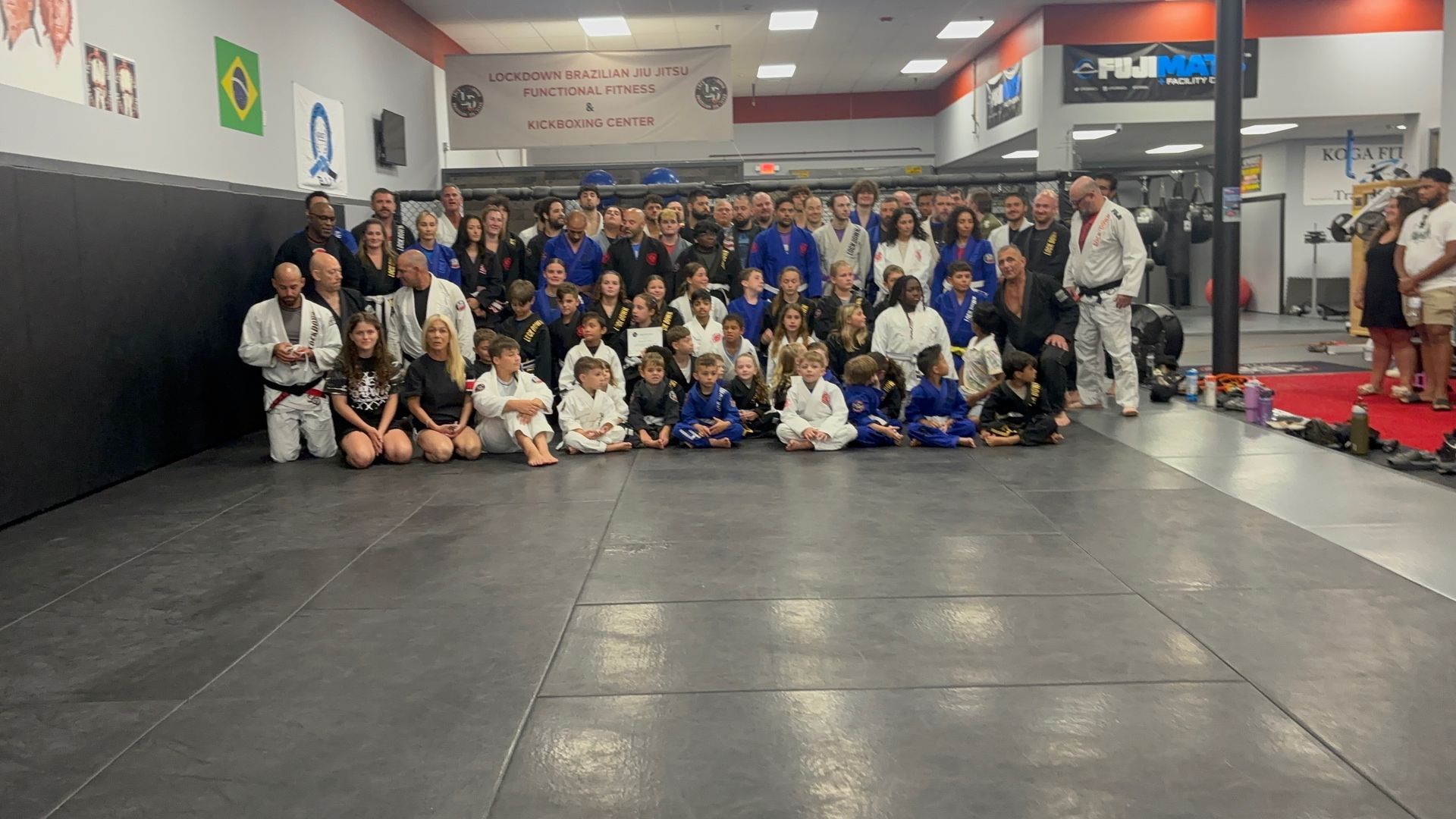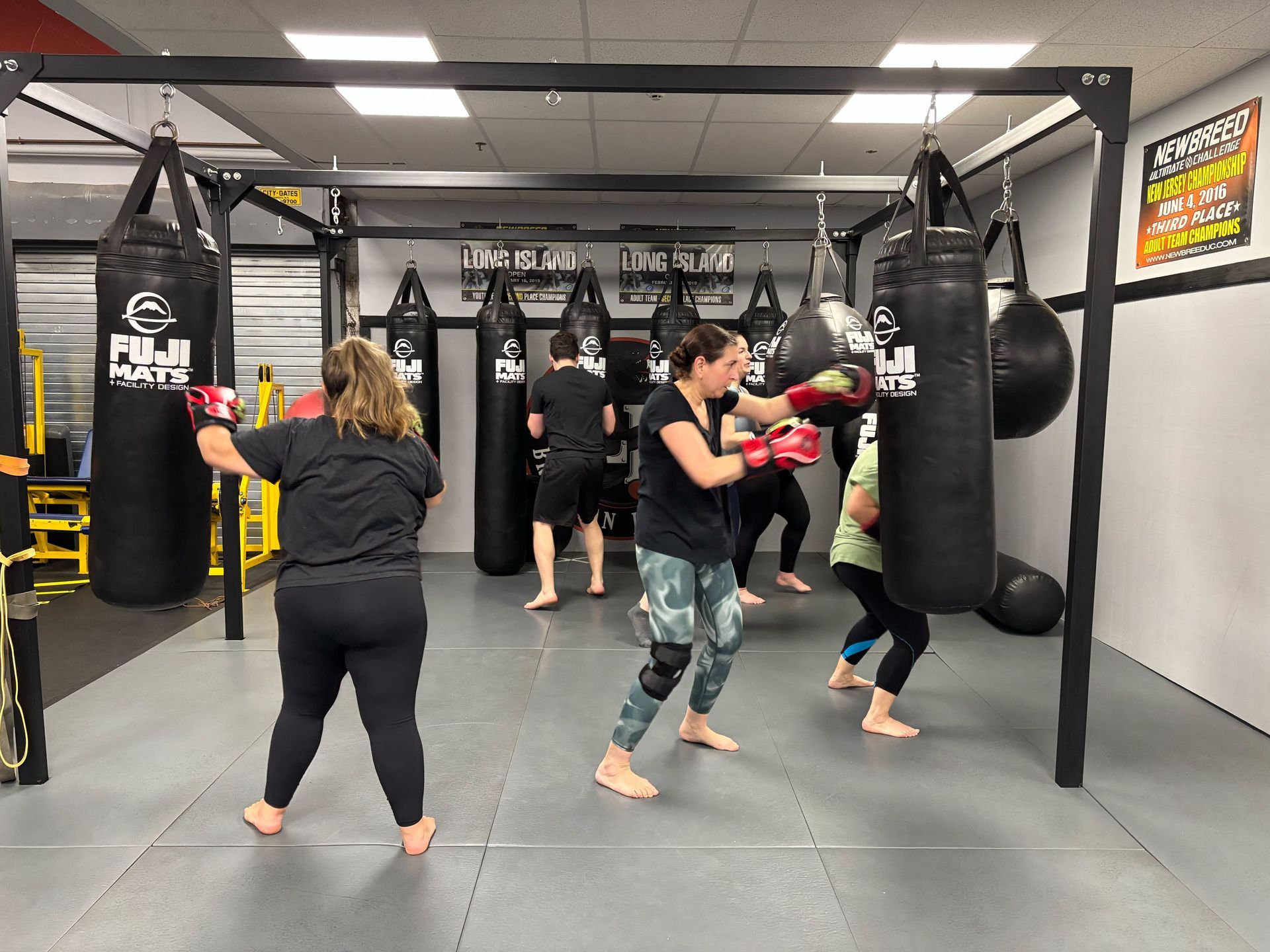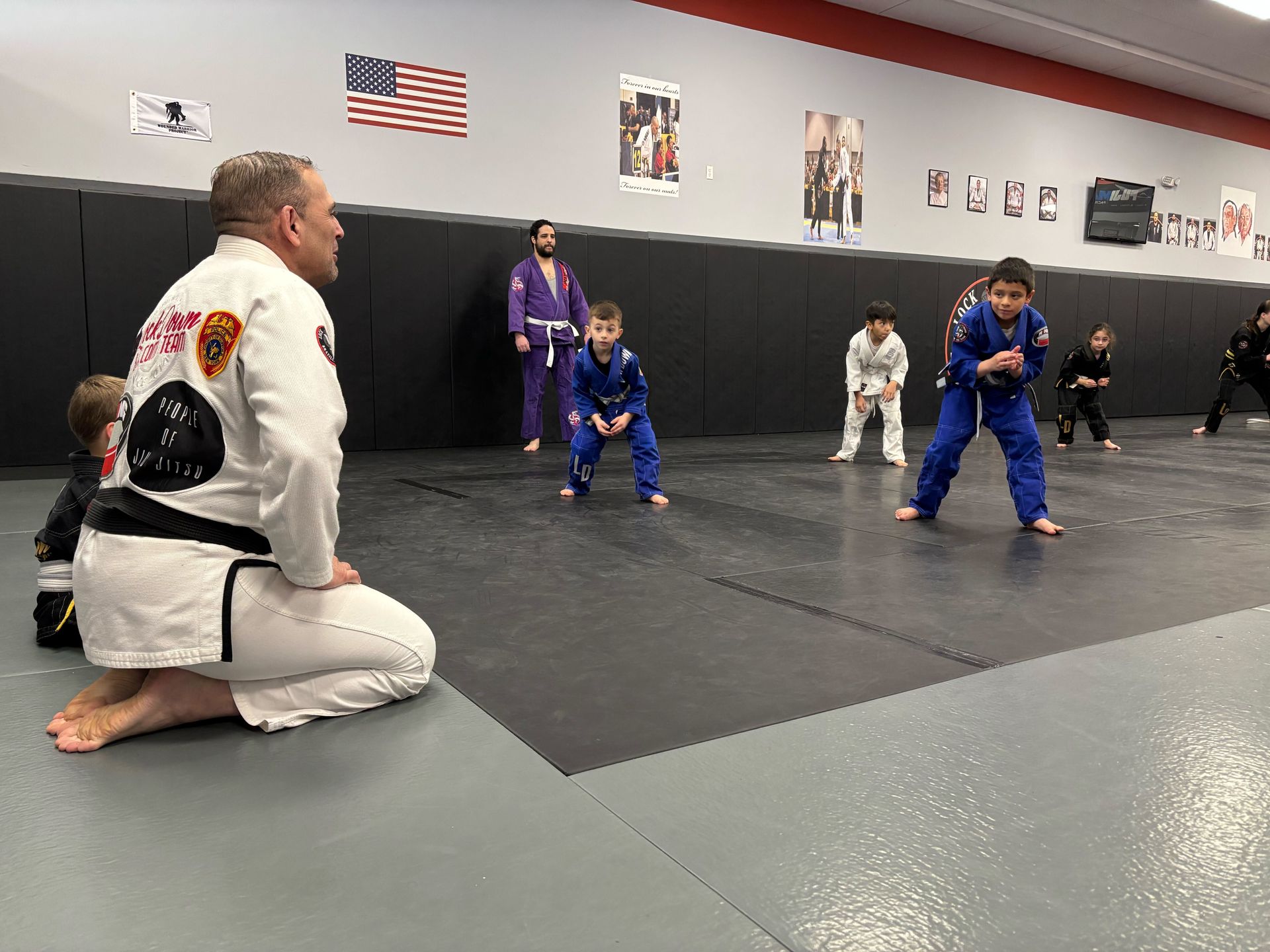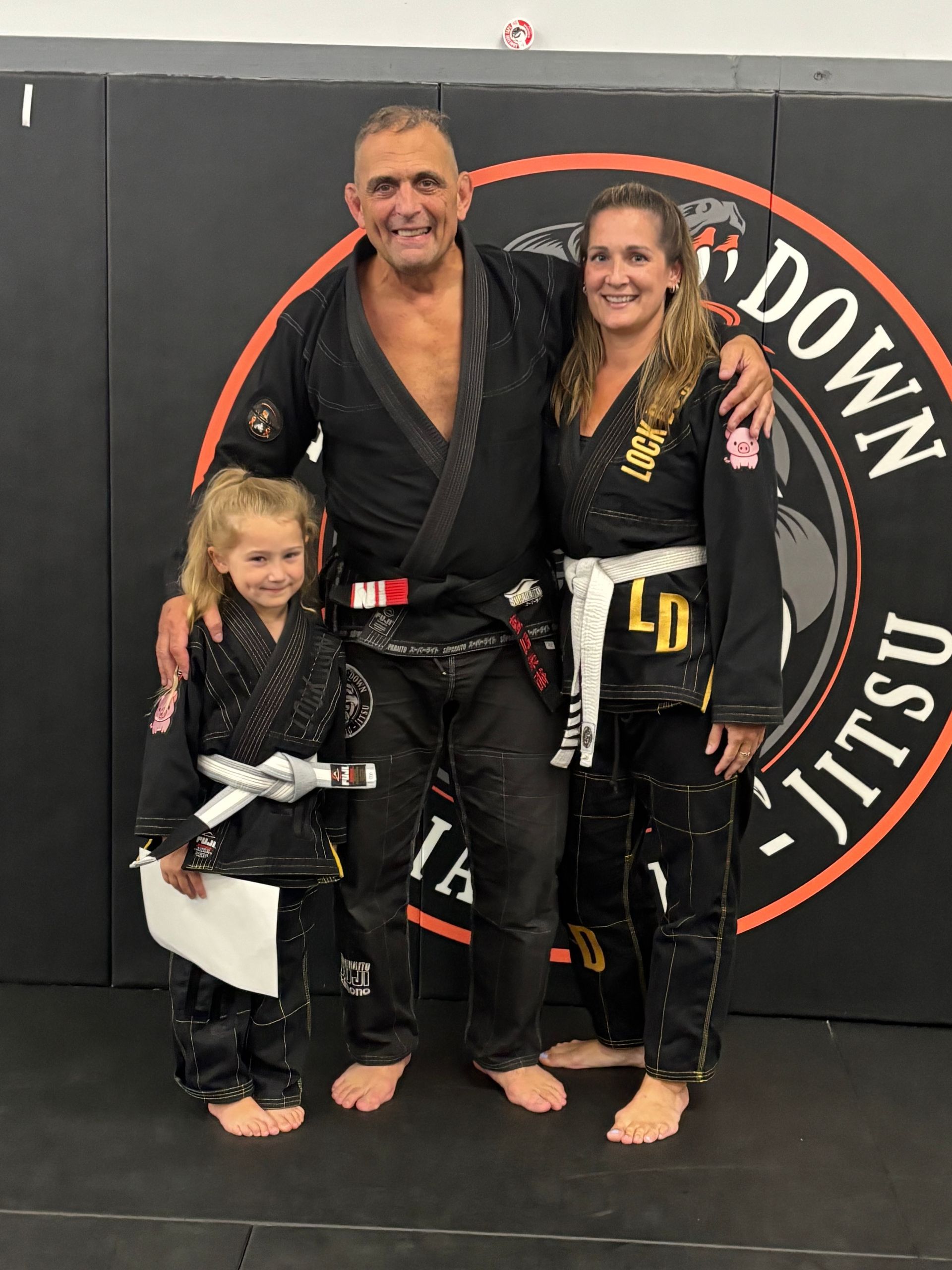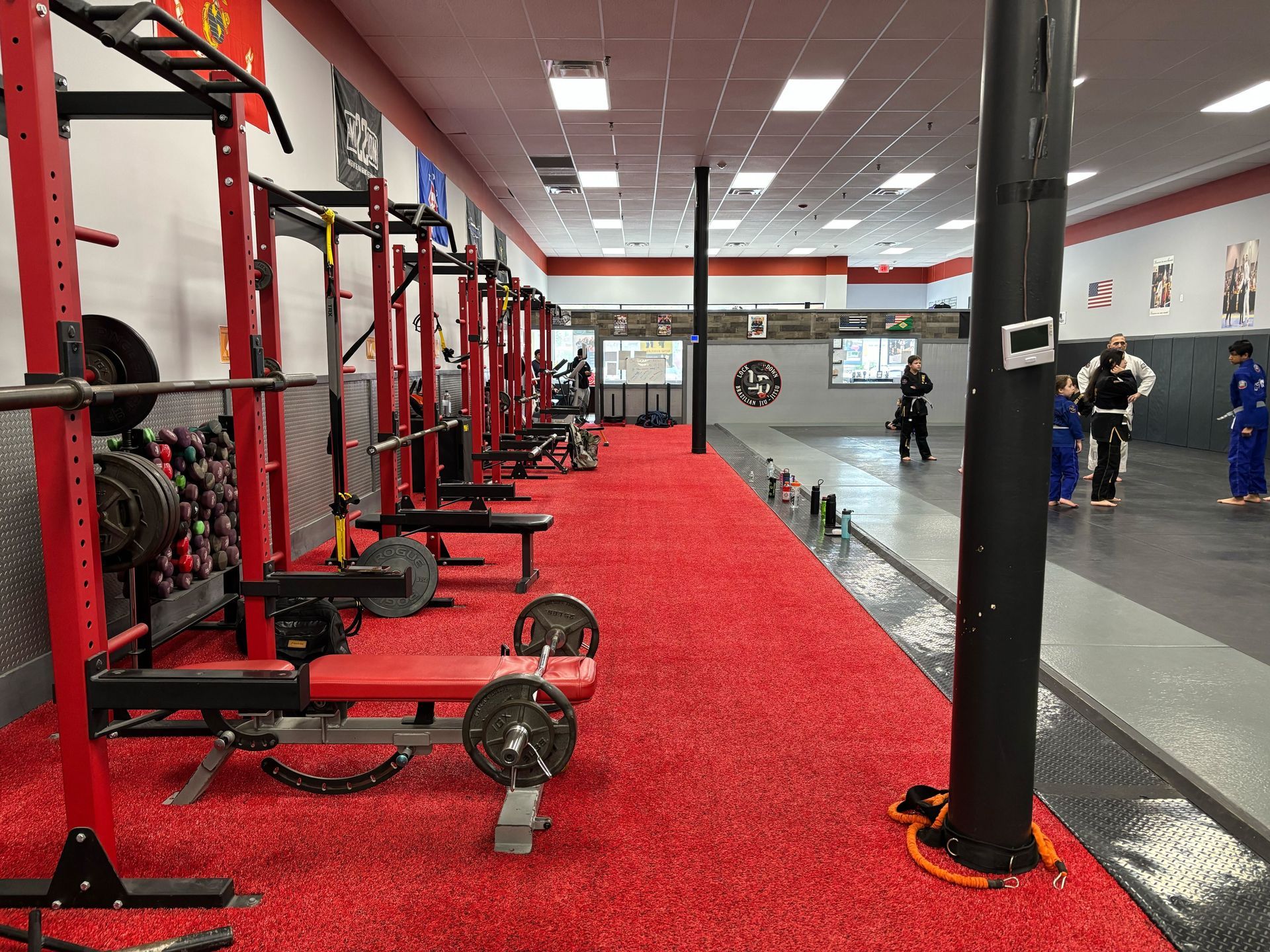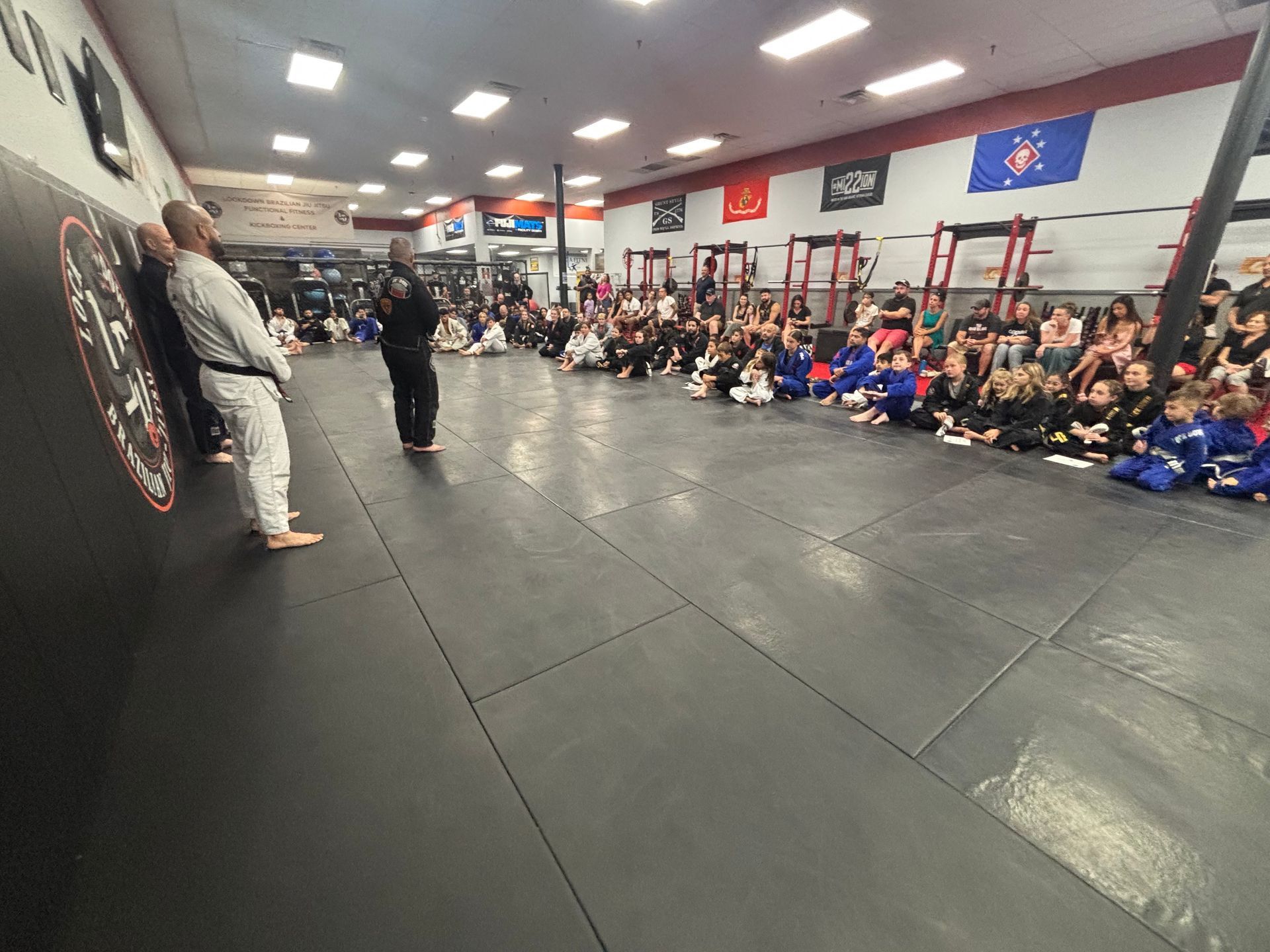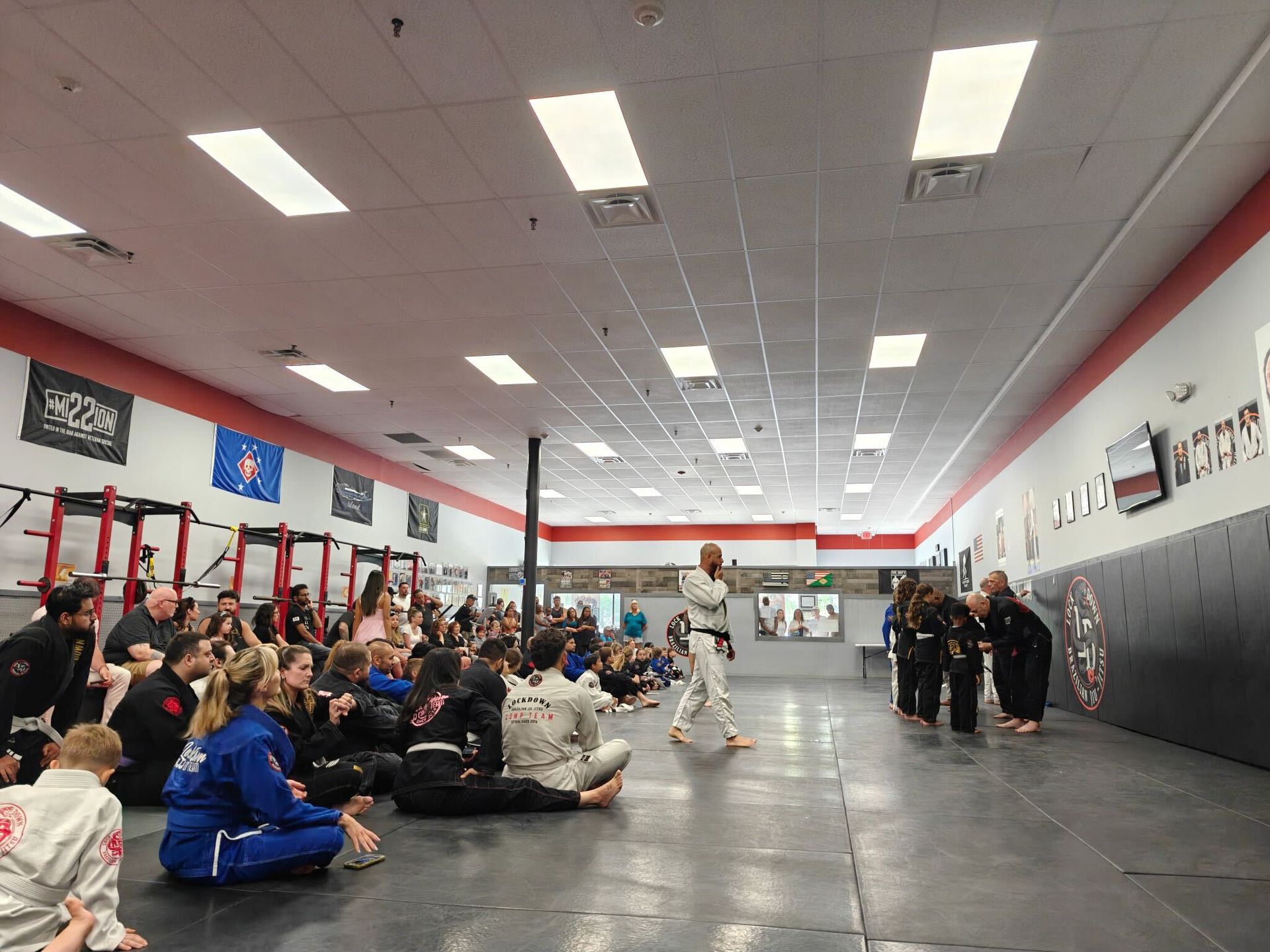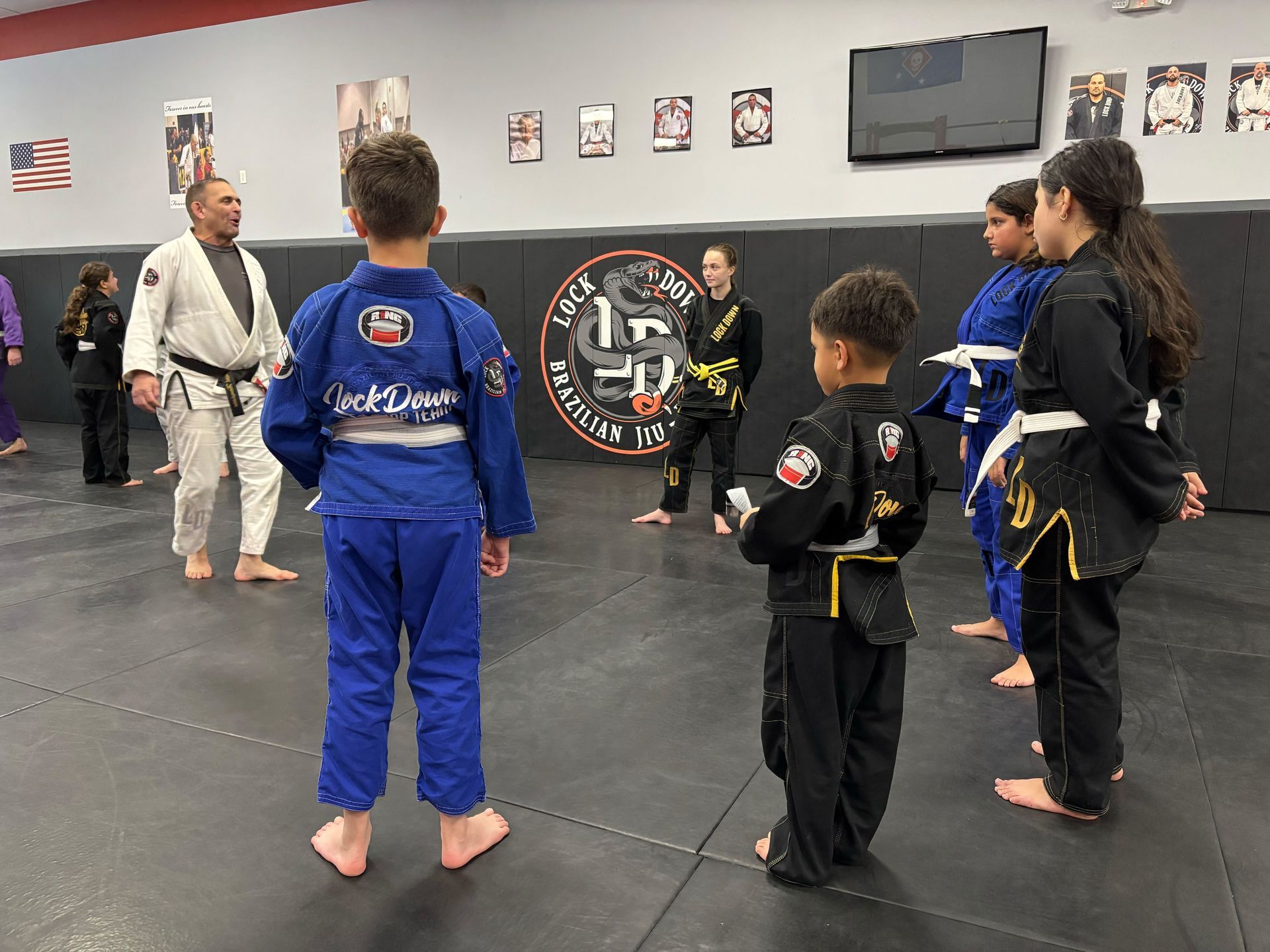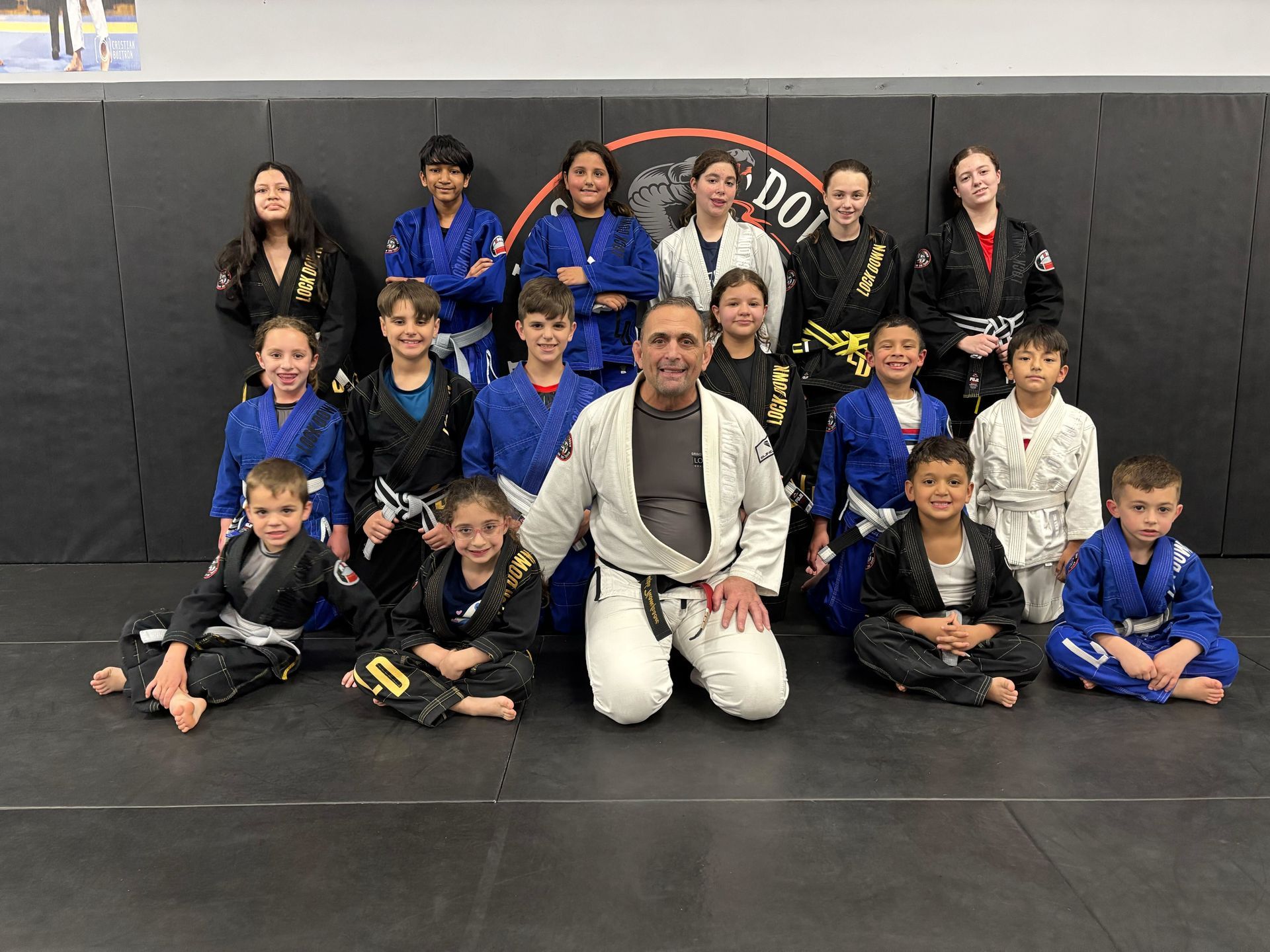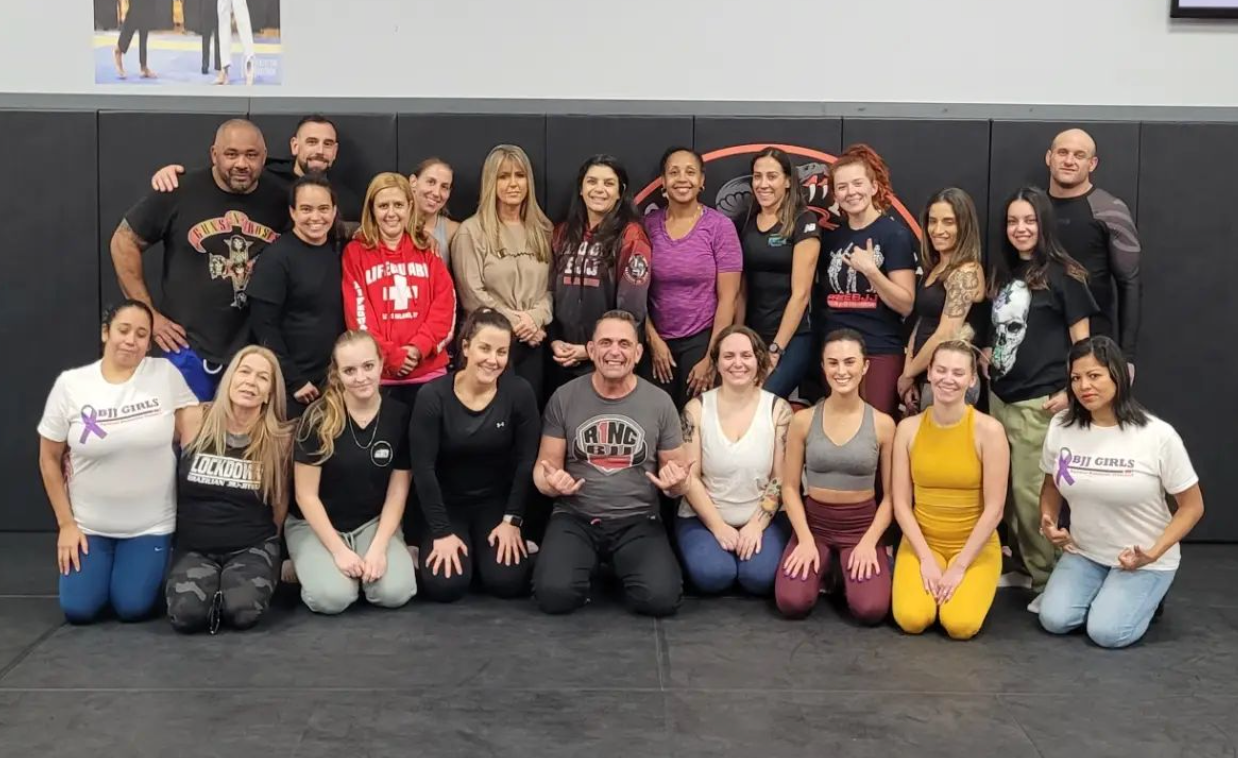Brazilian Jiu-Jitsu (BJJ) is not just about technique; it's also about stamina and endurance. Whether you're rolling in a competition or training for self-defense, a solid BJJ cardio is essential to perform at your best. If you're finding yourself winded or struggling to keep pace, you're not alone. But don't worry, you're in the right place. In this article, we'll explore the best ways to improve your BJJ cardio and help you reach your full potential on the mat.
At Lockdown Brazilian Jiu-Jitsu in Lake Ronkonkoma, NY, we understand the importance of cardio in Brazilian Jiu-Jitsu. Whether you're an adult looking to improve your fitness or a parent helping your child get stronger and more confident, improving your BJJ cardio can make a significant difference in your training.
Why Cardio Matters in Brazilian Jiu-Jitsu
Before diving into how to improve your cardio for Brazilian Jiu-Jitsu, let's quickly understand why it's so crucial. When you train in BJJ, you're constantly moving, transitioning between positions, and dealing with resistance. This requires a strong cardiovascular system to maintain high energy levels throughout your training session.
Having good cardio doesn't just prevent fatigue during sparring; it helps in maintaining focus, executing techniques with precision, and recovering quicker between rolls.
How to Improve Your BJJ Cardio: 5 Key Strategies
Incorporate Interval Training
One of the best ways to improve your BJJ cardio is by adding interval training into your workout routine. Brazilian Jiu-Jitsu training itself involves bursts of high-intensity exertion followed by moments of lower intensity, similar to interval training.
How to do it:
- Tabata Training: Perform 20 seconds of intense effort followed by 10 seconds of rest, repeating for 4 minutes. This is great for building explosive power and stamina.
- Sprints: Do 30 seconds of sprinting followed by 60 seconds of walking. Repeat for 15-20 minutes.
Interval training mimics the stop-and-go nature of BJJ and can significantly improve both your cardiovascular and anaerobic fitness.
- Increase Endurance with Longer Rolling Sessions
If you're just getting started in Brazilian Jiu-Jitsu, it’s important to gradually increase the length of your rolling sessions. This will help your body adapt to longer periods of exertion.
How to do it: - Start with short rolls (e.g., 2-3 minutes per round) and gradually increase the time as you get fitter.
- Join group classes that emphasize continuous rolling or specific drills to build your endurance over time.
The more you roll, the better your body will adapt to the demands of BJJ, improving both your physical and mental stamina.
Focus on Cardio Kickboxing for Cross-Training
At
Lockdown Brazilian Jiu-Jitsu, we offer cardio kickboxing classes that are designed to improve your overall fitness, stamina, and endurance. Cross-training in kickboxing helps build explosive movements and strength that directly benefit your BJJ cardio.
Benefits:
- Kickboxing improves your cardiovascular health by increasing heart rate for extended periods.
- You’ll work your arms, core, and legs, building strength for better grappling and escaping positions in BJJ.
If you're looking for a low-impact way to boost your cardio, consider signing up for a kickboxing for beginners class.
Consistency is Key: Training Regularly
The key to improving your cardio for Brazilian Jiu-Jitsu is consistent practice. You can't expect to see major improvements in just a week or two. Plan for consistent, gradual improvements over time, with regular training and a balanced recovery schedule.
Tips:
- Aim to train BJJ 3-4 times a week, focusing on technique, rolling, and fitness.
- Rest days are equally important to allow your body to recover and build stamina.
Lockdown Brazilian Jiu-Jitsu offers flexible schedules to help you train consistently without burning out.
Work on Breathing Techniques
Effective breathing is crucial when it comes to endurance. If you’re not breathing correctly during your rolls, you’ll tire out much faster. Learning how to control your breath can help you maintain energy throughout a session.
Breathing Tips:
- Focus on diaphragmatic breathing (breathing deeply through your stomach) rather than shallow chest breathing.
- Practice calming your breath during intense exchanges to help control your heart rate.
- Try breathing in for a count of 4 and out for a count of 4 during drills to improve stamina and focus.
Common Questions About Improving Your BJJ Cardio
What should I eat to improve my BJJ cardio?
Nutrition plays a significant role in your training. To improve your BJJ cardio, focus on:
- Complex carbs for energy (e.g., whole grains, oats).
- Protein to help with muscle recovery (e.g., lean meats, tofu).
- Healthy fats to sustain endurance (e.g., avocados, nuts).
How long will it take to see improvements in my BJJ cardio?
It typically takes
6-8 weeks of consistent training to see noticeable improvements. Make sure you stay consistent with both your BJJ classes and any supplementary cardio workouts.
Can kids also improve their BJJ cardio?
Yes! At Lockdown Brazilian Jiu-Jitsu, we offer kids' BJJ classes that help young learners improve their fitness, coordination, and stamina. Regular practice will naturally help kids develop better cardio for both BJJ and other physical activities.
Simply Put
Improving your BJJ cardio doesn’t happen overnight, but with dedication and the right approach, you’ll notice significant improvements. Incorporating interval training, increasing your rolling time, cross-training with kickboxing, and maintaining consistency are all key strategies to boost your stamina and endurance. Remember, good cardio not only improves your BJJ performance but enhances your overall fitness and health.
Ready to take your BJJ cardio to the next level? Book your free trial class at Lockdown Brazilian Jiu-Jitsu in Lake Ronkonkoma today and start improving your fitness, technique, and endurance!
